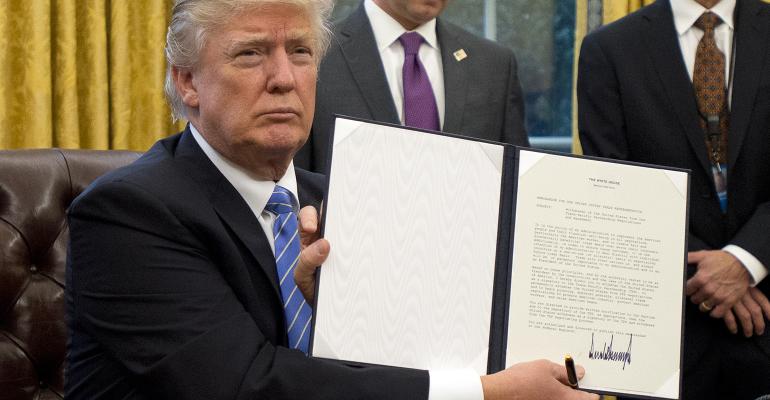Keeping his word on his campaign promises, President Donald Trump issued broad policy changes restricting new regulations—prompting the Internal Revenue Service to cease from releasing any guidance (except for routine items such as updates to interest rates) at this time, including any revenue procedures and revenue rulings.
One such policy change, an executive order unofficially dubbed “one-in, two-out,” directs federal agencies to repeal two regulations for each new rule issued, in what is the Trump administration’s first go at dealing with overregulation, and applies to “significant regulatory actions.” Though the executive order applies to tax guidance, practitioners have previously speculated to what extent, as such guidance has historically been considered interpretative, and not generally regarded as a significant regulatory action.
The second policy change, a Memorandum issued by White House chief of staff Reince Priebus on Jan. 20, imposes a government-wide freeze on new or pending regulations. According to the memo, federal agencies are not to send any new regulations to the Office of the Federal Register until Trump's administration has appointed leaders to review and approve the proposed regulations.
In light of these directives, and because of the interest in pushing tax reform, Krishna Vallabhaneni, Treasury deputy tax legislative counsel, said he won’t be reviewing any projects on the priority guidance plan. He went on to explain, “it doesn't make a whole lot of sense to throw resources at putting out new regulations based on the old tax rules.”
Robert Wellen, IRS associate chief counsel (corporate), confirmed that the agency would, however, continue to release private letter rulings and chief counsel advice memoranda. In fact, Wellen commented that the IRS is looking to open up the process and is trying to come up with ways to issue rulings on full transactions (restrictions currently in place limit the IRS to ruling on a significant issue only rather than an entire transaction). He added that the IRS is also examining new ways to faster process ruling requests and put more of the burden on taxpayers (for example, he said a new process might require taxpayers to make representations in a prescribed form or otherwise explain why such a prescribed form could not be used).

